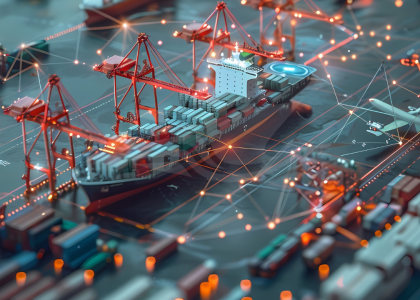Effective Communication Strategies for Global Maritime Projects
In today’s interconnected maritime industry, managing international stakeholders, cross-border teams, and complex supply chains requires more than technical expertise—it demands robust communication strategies. As global maritime projects grow in scale and complexity, seamless coordination and clarity are essential for on-time, on-budget, and compliant project delivery (image by: freepik).
The Importance of Communication in Global Maritime Operations
Communication plays a foundational role in every stage of a maritime project—from initial concept and vessel design, to construction, testing, delivery, and lifecycle support. Delays, errors, and misunderstandings often stem not from technical flaws, but from gaps in project communication. Whether you’re dealing with shipyards in Asia, class societies in Europe, or owners in the Middle East, unified communication channels are essential.
Connect your international teams seamlessly. Learn how our communication expertise drives global project success.
Challenges in Global Maritime Communication
Global maritime projects face a unique set of communication challenges:
- Time zone gaps that slow down decision-making.
- Language and cultural differences that cause misinterpretation.
- Multiple digital platforms that lack integration.
- Document version control issues across stakeholders.
These obstacles can disrupt workflows, delay approvals, and escalate project risks. Addressing them requires proactive communication strategies tailored to the maritime environment.
Core Elements of an Effective Communication Strategy
A successful global maritime communication plan integrates the following:
- Centralized documentation platforms with real-time updates and role-based access control.
- Multilingual communication policies to bridge language gaps and reduce ambiguity.
- Scheduled cross-time zone meetings using shared calendars and automatic reminders.
- Clear reporting structures to ensure accountability and escalation when needed.
When implemented early, these strategies increase transparency, accelerate workflows, and reduce costly miscommunication.
Digital Tools That Support Global Communication
Modern global maritime projects leverage a suite of tools to enable reliable project communication:
- Project management platforms (e.g., Monday.com, Asana, or MS Project) for task tracking.
- Cloud-based collaboration (e.g., Google Workspace, Microsoft Teams, M-Files) for shared documentation.
- Live dashboards that provide real-time status updates for vessel construction, surveys, and logistics.
However, tools alone are not enough. Human-centric design, team discipline, and alignment with project goals are equally crucial.
Building a Communication Culture in Maritime Projects
Beyond technology, long-term success in project communication requires fostering a culture of clarity, responsiveness, and shared responsibility. Teams must be trained not only on systems, but also on communication best practices: concise reporting, consistent terminology, and active listening across languages and roles.
Leaders must set the tone by emphasizing communication as a core performance metric. Regular feedback loops and review cycles ensure that gaps are caught and corrected early.
Bridge the distance in your global maritime ventures. Enhance project clarity and collaboration with our expert communication strategies.







